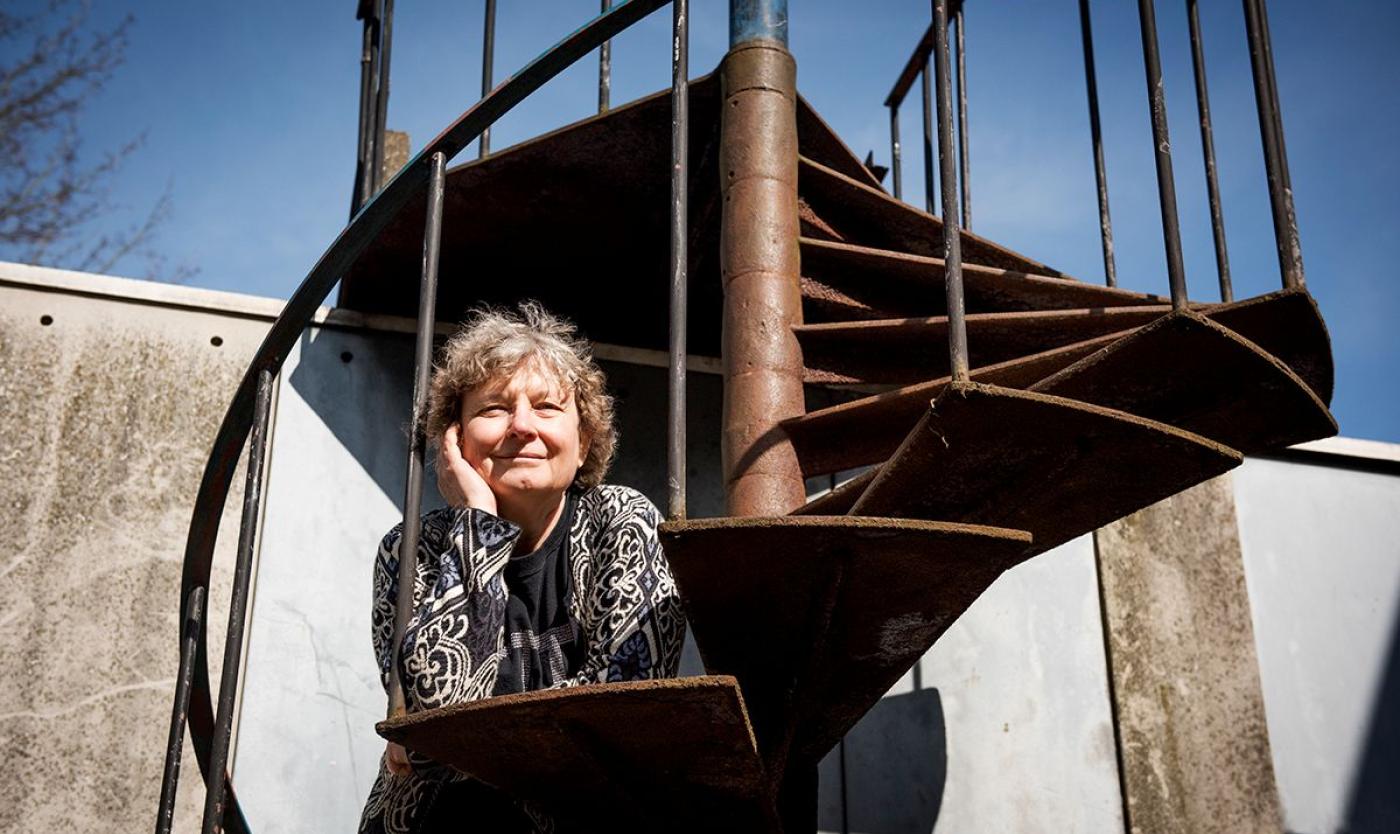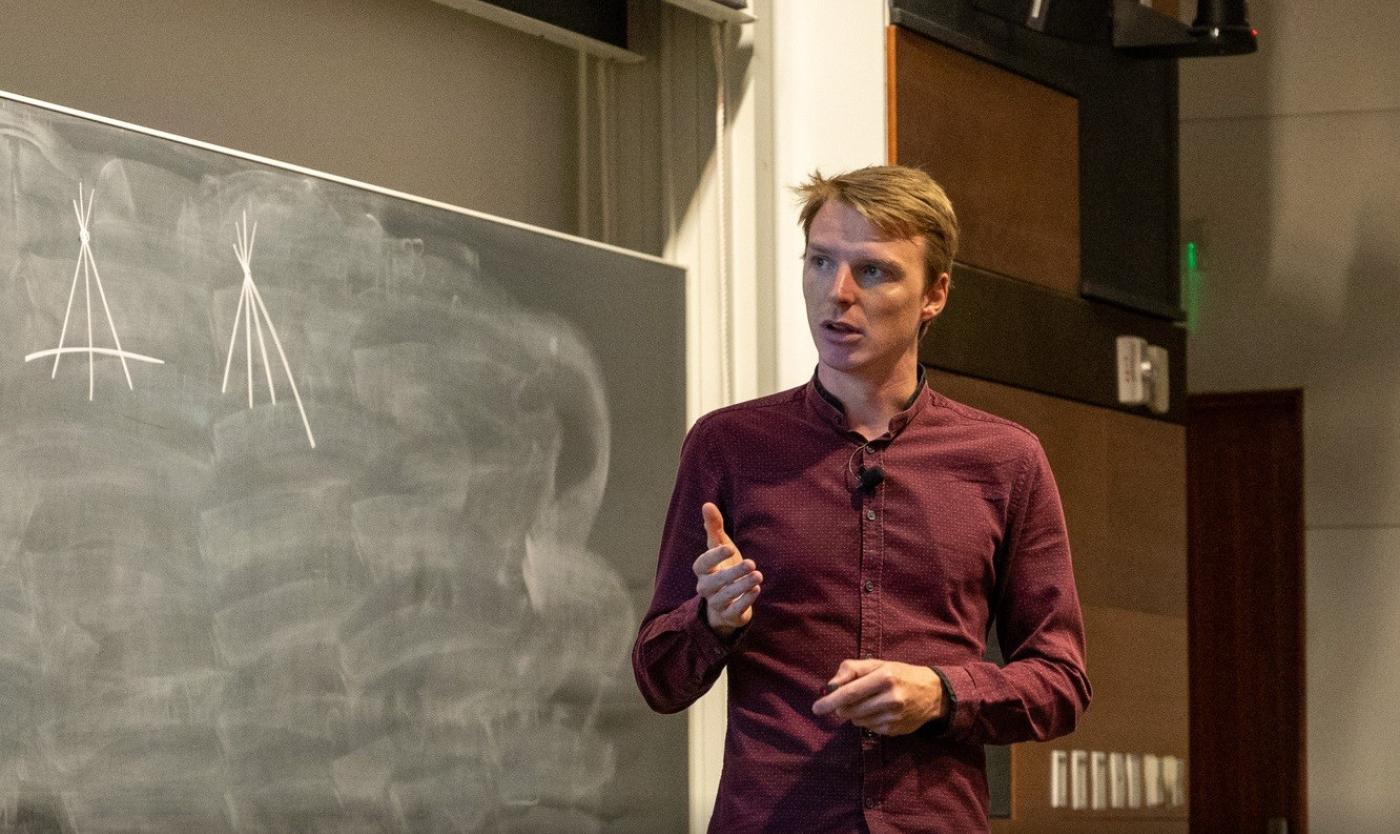
With a degree in mathematics, you can go in many directions. After a PhD, Eva Vandersmissen wanted to go into practice. Today, she unleashes artificial intelligence on datasets at NATO.
How did you choose your studies?
‘Actually, I first wanted to study engineer-architect. While preparing for the entrance exam, I liked maths so much that during the exam itself I decided to just do maths. That it would be VUB was obvious. My parents also studied here. The liberal and critical attitude encouraged at the VUB was and is very important to me. And I am not alone in this. When I meet other VUB graduates, I notice -no matter whether they studied psychology or mathematics- that they share those values.’
Including your PhD, you spent eight years at the VUB. What memories stick with you?
‘I arrived here in 2000, when I was seventeen, and I remember well that during my first year, it felt like a new world opened up to me in every way: from the diversity of Brussels, to the interesting classes, to the friends I made for life. These were still different times. It was even still allowed to smoke in the corridor, terrible. I started handing in my first task for programming on a floppy disk. Can you imagine that! And e-mail, for instance, had already been invented, but was not yet used to make appointments.’
Did social life differ from today because of that?
‘Yes, today it is very easy to connect with peers purely from behind your computer. I think that's a dangerous evolution. In my experience, learning to network live is very important anyway, for example to work well together. I fear that today's students are less able to develop those skills. At the end of the semester, they get to see their exam results online these days. They have to process them on their own. With us, at least for the first few years, the results were hanging in the corridors. We met our fellow students there and were thus also there for each other if someone had a disappointing result, or just to celebrate a great result.’
How did you make friends at VUB?
‘I was baptised at the scientific circle. Such a baptism is a really good way to meet new people. You immediately see each other in a non-ordinary situation. That creates a bond. Although I didn't do much with the student group afterwards, thanks to that baptism I got to know a lot of nice people. Together we regularly went to a TD. I also had a good relationship with the other maths students. The group was small, therefore everyone knew each other. We also spent a huge amount of time together, because we had a busy class schedule.’

Which prof sticks with you?
‘From professor Eva Colebunders, I remember very well her first lesson in mathematical analysis. It was very haunting, almost philosophical. After two hours I walked out of there dazed. The way she taught mathematics was completely different from the way she taught it in secondary school. I later doctored with her, but she had my attention from the first minute.’
"With new technology, we should always think whether it is necessary and how we can make it more social or humane"
How did your professional life turn out?
‘First, I did a PhD in categorical topology. My PhD was about basic research. I don't regret that, it was a nice project but I didn't want to end up in an ivory tower. So after four years, I started looking for a job with more practical applications. For 15 years, for instance, I developed software to analyse medical images using AI. If you can market a product that radiologists use for better image quality with a much lower radiation dose, you feel you have impact. For a year now, I have been working as a senior data scientist for the NCIA (Nato Communication and Information Agency), NATO's technical arm. Here, I work on projects to unleash AI on satellite imagery, for example. I cannot yet assess my impact very well. I haven't worked there long enough yet. But what typifies my way of working is that I dare to question everything. With every application, I ask whether AI is really necessary here. If it should not be, I prefer not to use it, because there are some risks involved in using AI.’
What is your advice for today's students?
‘On the one hand, I think the human connection I experienced myself during my student days is very important. Hence: go to bars and talk to each other. In addition, in today's world, which is anything but stable geopolitically, I think a critical mindset is indispensable. So dare to question things! In scientific publications, it is often about the latest technology. You have to learn to use it, and even co-develop it, but not without thinking about whether it is necessary and how we can make it more social or more humane.’
What dreams do you still have for your career?
"As long as I am learning things, I want to keep doing a job. Currently, that is the case. There is still a lot I want to understand and fathom better. But I still have dreams. A teacher training diploma is in the drawer, for instance; maybe one day I will go into teaching. Or maybe I'll go back to business, who knows. I already know I won't be able to realise all my dreams, but I will keep dreaming anyway."
Bio Eva Vandersmissen
In 2004, Eva Vandersmissen obtained her master's degree in mathematics at VUB. Afterwards, she followed teacher training there and obtained a PhD in categorical topology. Today, she works for a NATO agency as a senior data scientist.

